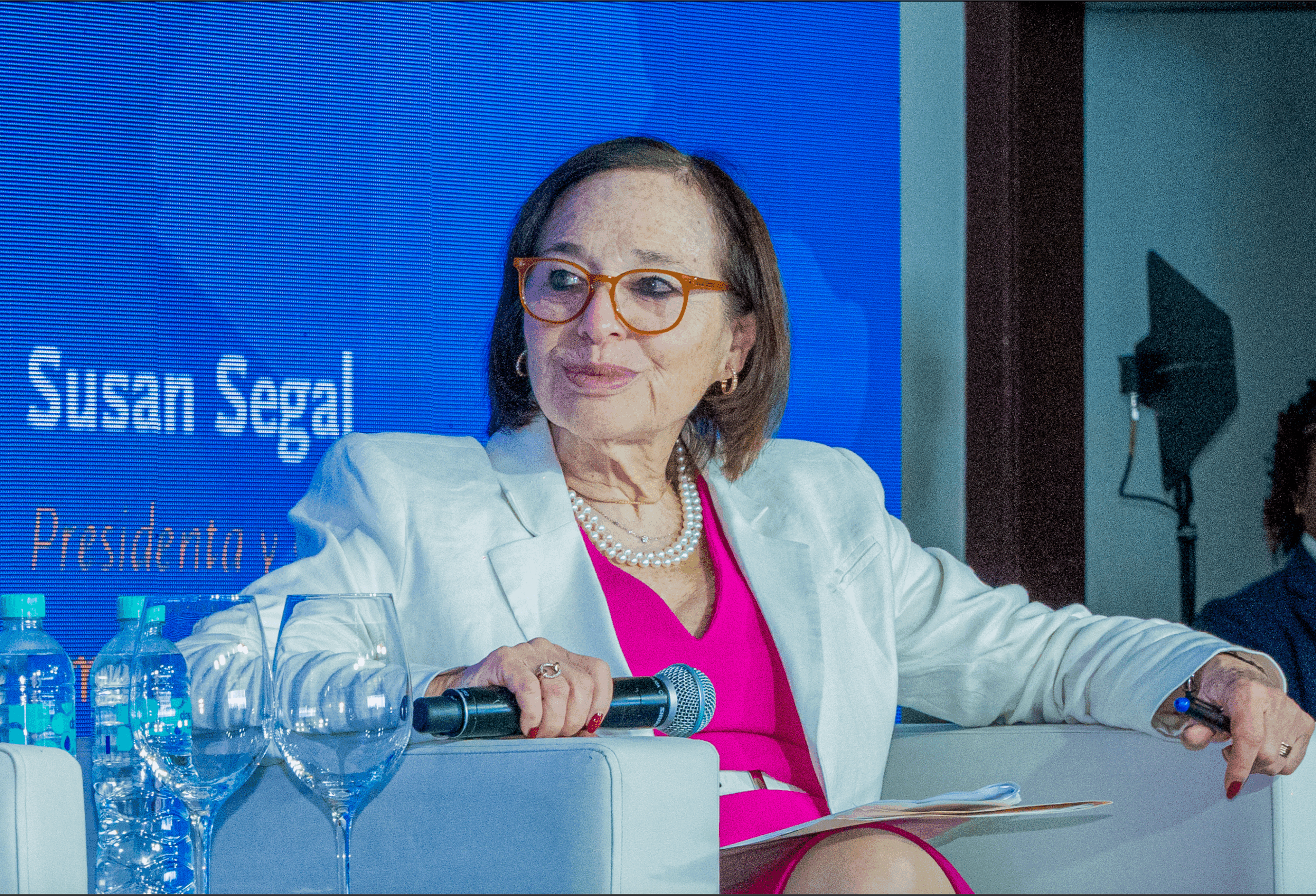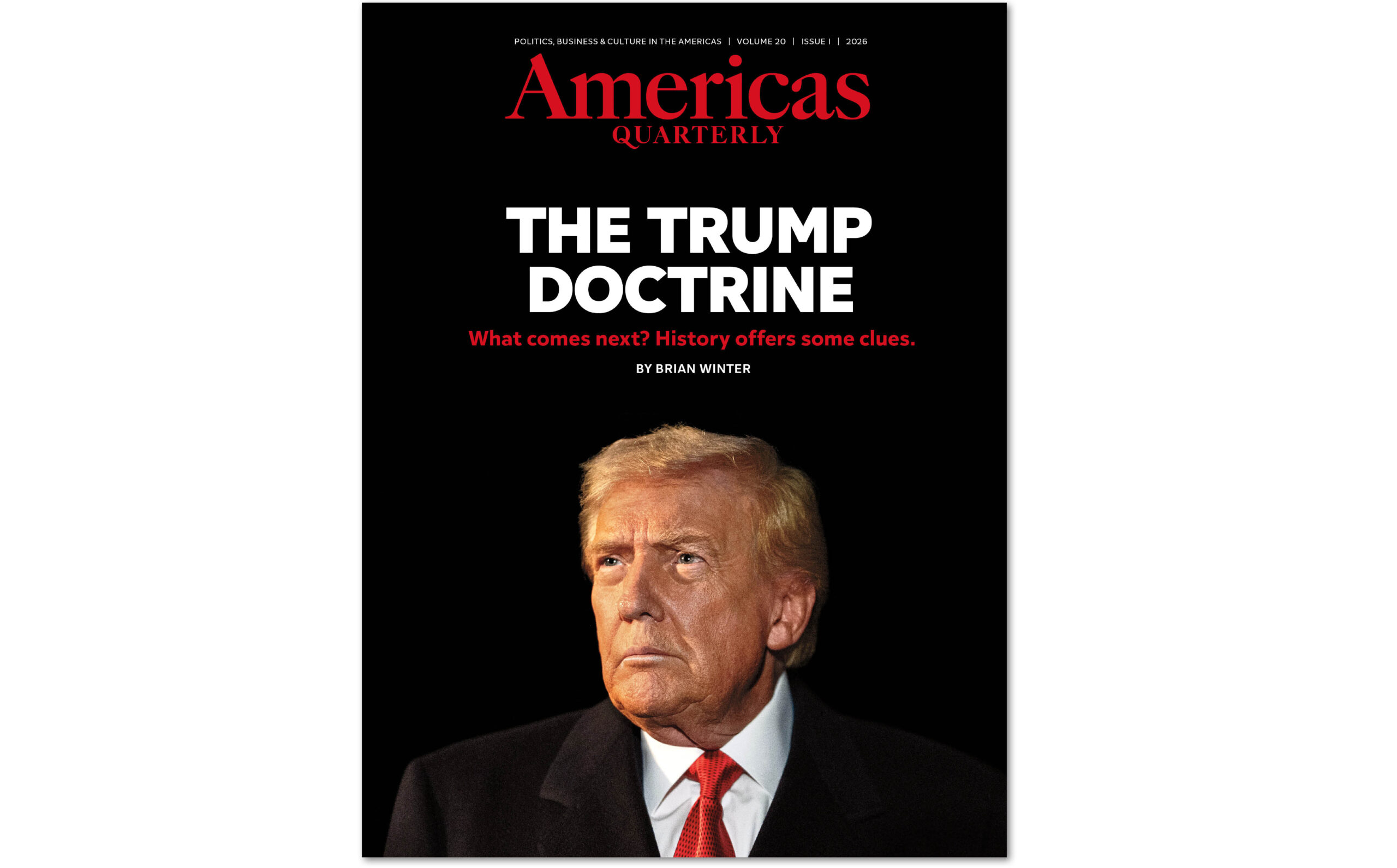What It Really Means to Stand with the Poor
What It Really Means to Stand with the Poor
In an article for Diplomatic Courier, COA's Eric Farnsworth writes that leaders gathering at the Summit of the Americas this weekend must focus on common solutions to alleviate regional poverty: "By championing sustainable development, we can stand with the poor and advance a common agenda throughout the hemisphere."
As hemispheric leaders travel to the mid-April Summit of the Americas in Trinidad and Tobago, they arrive with excess baggage. They are weighed down by the unprecedented global financial crisis that has rocked the foundations of their respective domestic economies, reduced exports, slowed productivity, slashed jobs, and the diminished life savings of their citizens.
As they unpack their bags and get to work on challenges facing the Americas, finding concrete ways to address effectively the financial meltdown will be first on their list of priorities, and appropriately so. At the same time, they must not allow the urgent stress of short-term needs to obscure a collective commitment to sustainable long-term prosperity in the Western Hemisphere, which begins with a shared resolve to invest in enduring solutions to improve the lives of the poor.
The White House has said that U.S. policy in the Americas would henceforth be guided by a simple test: whether it improves the lives of those living in favelas and barrios. Ultimately, of course, the responsibility for improving the lives of their respective citizens falls to elected leaders of hemispheric governments themselves, but the United States and others in the developed world certainly can—and must—assist.
As reported in the Wall Street Journal in December 2008, 182 million people in the Americas live in poverty, of whom 71 million live in extreme poverty. As the financial crisis worsens, the uncertainty we may be feeling in our own families is hitting the poorest even harder. Persistent poverty precipitates a number of daunting social problems for the region, including income inequality, discrimination, insufficient public services, and food insecurity.
As our own neighborhood, the Americas deserve everything we can reasonably do to promote smart and proven solutions to poverty. A common anti-poverty agenda could well be one area that brings the hemisphere together, building a framework for cooperation even among nations that heretofore have found little else on which to agree.
Donors, who are passionate about progress throughout the Americas, also have a vital role to play in delivering assistance for sustainable development and poverty reduction. Smart, responsible investments of development dollars can motivate forward-thinking leaders in the Americas to embrace homegrown reforms to empower their poor with the education, health resources, and security necessary for a better future.
Development assistance—delivered with accountability—can offer an effective way to combat the ills of poverty, whether it is saving the lives of those affected by HIV/AIDS or other diseases, teaching small businesses and farmers how to benefit from trade and new markets, helping consumers tap into clean energy sources like ethanol or biodiesel, or protecting communities from criminal gangs, trafficking, and violent crime.
At the same time, the best poverty alleviation programs create meaningful work in the formal economy, and assistance that improves the regional business climate would go the furthest toward building the conditions necessary to draw both the domestic and direct foreign investment necessary to create those jobs that the region so desperately needs.
U.S. taxpayers are making an important and lasting difference, even during difficult economic times at home. The programs already underway deserve attention for being more than quick fixes or temporary band-aids. Instead, they invest in creating the conditions necessary to restore growth. They work to eliminate corruption, improve healthcare and education, construct roads, train farmers, boost agricultural productivity, and help entrepreneurs thrive. Just ask Edras Mateo and the other 3,662 small farmers assisted so far through a long-term rural development project in Honduras funded through the Millennium Challenge Corporation, an innovative, policy performance-based approach to development that, along with other U.S. Government-sponsored programs, not only recognizes the long-term needs of the poor but also offers sustainable solutions to address them.
Leaders throughout the Americas recognize the stimulus that development assistance can bring to the poor throughout the region. By championing sustainable development, we can stand with the poor and advance a common agenda throughout the hemisphere, even when we may disagree on other matters.
Heading to the April Summit, now is the time to recommit to a hemispheric agenda for growth that includes the poor. To do otherwise—to ignore or marginalize the plight of the poor throughout the Americas—would only add more baggage to the challenges of these complex and difficult times.
Mr. Bent is the acting Chief Executive Officer of the Millennium Challenge Corporation and Mr. Farnsworth is Vice-President of the Council of the Americas.








